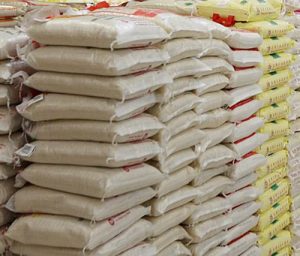‘60% duty on imported rice’ll boost local production’

The All Farmers Association of Nigeria has said that the 60 per cent import duty on imported rice will promote local rice and make it more competitive.
The President of the association, Mr. Kabiru Ibrahim, who stoke with media, said a combination of high exchange rate and high import tariffs on agricultural products, including rice would make Nigeria to attain self-sufficiency in food production.
According to him, this will reduce the activities of importers as importation will no longer be profitable.
He said, “In fact, it will reduce the importation of rice. It will become very costly and it will be difficult to compete with the local rice. Besides, buying it in dollars and having to pay a higher tariff will make it less attractive to the people because it won’t be profitable.”
The Federal Government had increased the tariff on imported luxury items as well as food commodities with the duty on rice rising from 10 per cent to 60 per cent.
Other commodities affected are sugar cane and salt from 10 per cent to 70 per cent; alcoholic spirit, beverages and tobacco from 20 per cent to 60 per cent.
Meanwhile, due to the shortfall in the supply of paddy rice to meet the huge demand for processed rice in the festive season, some rice millers had urged the government to give them import licences to enable them to bring unprocessed brown rice into the country.
The Personnel Manager, Umza International Farms Limited, an indigenous rice mill, Mr. Ali Aliyu, explained that one of the reasons for the increase in local rice from N14,000 to N16,000 per 50 keg bag was the insufficiency of paddy to meet consumers’ demand.
He said, “The paddy rice is not sufficient for the millers and we wanted about 800,000 tonnes of paddy rice in 2016 and up until now, we have not got up to 40,000 tonnes.”
But Ibrahim said, “We will not support the importation of brown rice; let them be patient because there will be enough paddy rice. So many people are now engaged in the production of paddy rice. The CBN anchor programme is taking shape and it has recently been launched in Kaduna State.
“In many states, paddy will be available and the millers should try to be part of the anchor programme because they are the users and the farmers are their suppliers. Nobody should give them any licence because it will negate the purpose of the programme.”
President Muhammadu Buhari inaugurated the CBN anchor programme aimed at creating economic linkage between over 600,000 smallholder farmers and large-scale food processors.
The Governor of the CBN, Mr. Godwin Emefiele, had said the initiative would increase agricultural output and significantly improve capacity utilisation of integrated mills.
He also noted that it would close the gap between the level of local rice production and domestic consumption.







